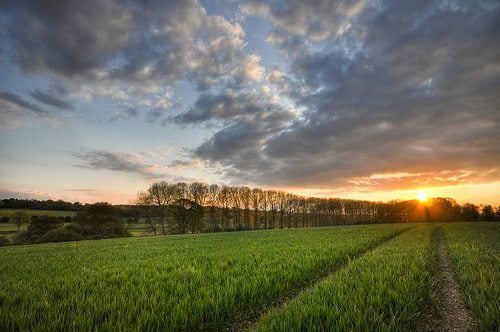

Environment
Food diversity vital for adapting to climate change
Maintaining genetic diversity within the world’s food supply is vital to ensuring that humankind can preserve crop yields and adapt to climate change, however, a warming world places diversity at risk, a paper from the UN’s Food and Agriculture Organisation (FAO) has warned.
The paper notes that agriculture, fisheries, aquaculture and forestry face the challenge of ensuring food security of an additional 3 billion people by 2050, which is estimated to require a 60% increase in global food production. Climate change is expected to make the task of achieving this an even greater challenge.
In order to meet future food demand, farmers could potentially turn to wild crops that genetically are more resilient to the conditions that climate change will present than crops currently used for farming. However, many of these crops are currently at risk.
It is estimated that between 16 and 22% of wild relatives of crop species may be in danger of extinction within the next 50 years.
FAO deputy director-general, Maria Helena Semedo said, “In a warmer world with harsher, more variable weather, plants and animals raised for food will need to have the biological capacity to adapt more quickly than ever before.
“Preventing further losses of agriculture generic resources and diverting more attention to studying them and their potential will boost humankind’s ability to adapt to climate change.”
In order to combat diversity loss the FAO states that boosting the conservation of genetic diversity on farms and in fields is “as critical as maintaining gene banks”. It notes that many life-forms used in agriculture don’t have the equivalent of seeds and can only be maintained through human intervention, including bananas.
Linda Collette, lead editor of the paper and secretary of FAO’s Commission on Genetic Resources for Food and Agriculture, added, “We need to strengthen the role of genetic resources and help farmers, fishers and foresters cope with climate change.”
Photo: Greg Knapp via Flickr
Further reading:
World needs to sustainably produce 70% more food by 2050
Grocery sector launches campaign to tackle household food waste
Salt degradation risking food security, says UN study


 Environment12 months ago
Environment12 months agoAre Polymer Banknotes: an Eco-Friendly Trend or a Groundswell?

 Features11 months ago
Features11 months agoEco-Friendly Cryptocurrencies: Sustainable Investment Choices

 Features12 months ago
Features12 months agoEco-Friendly Crypto Traders Must Find the Right Exchange

 Energy11 months ago
Energy11 months agoThe Growing Role of Solar Panels in Ireland’s Energy Future





























